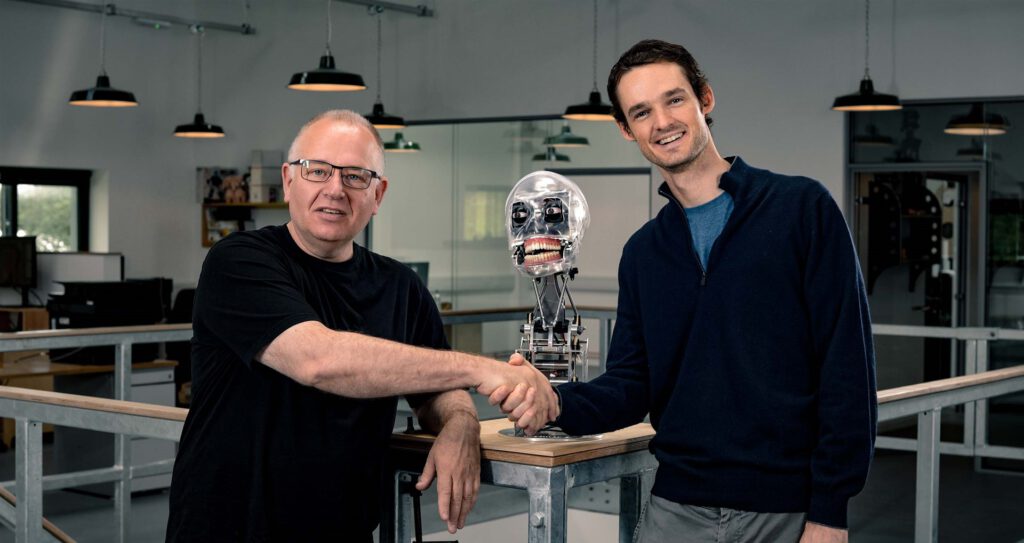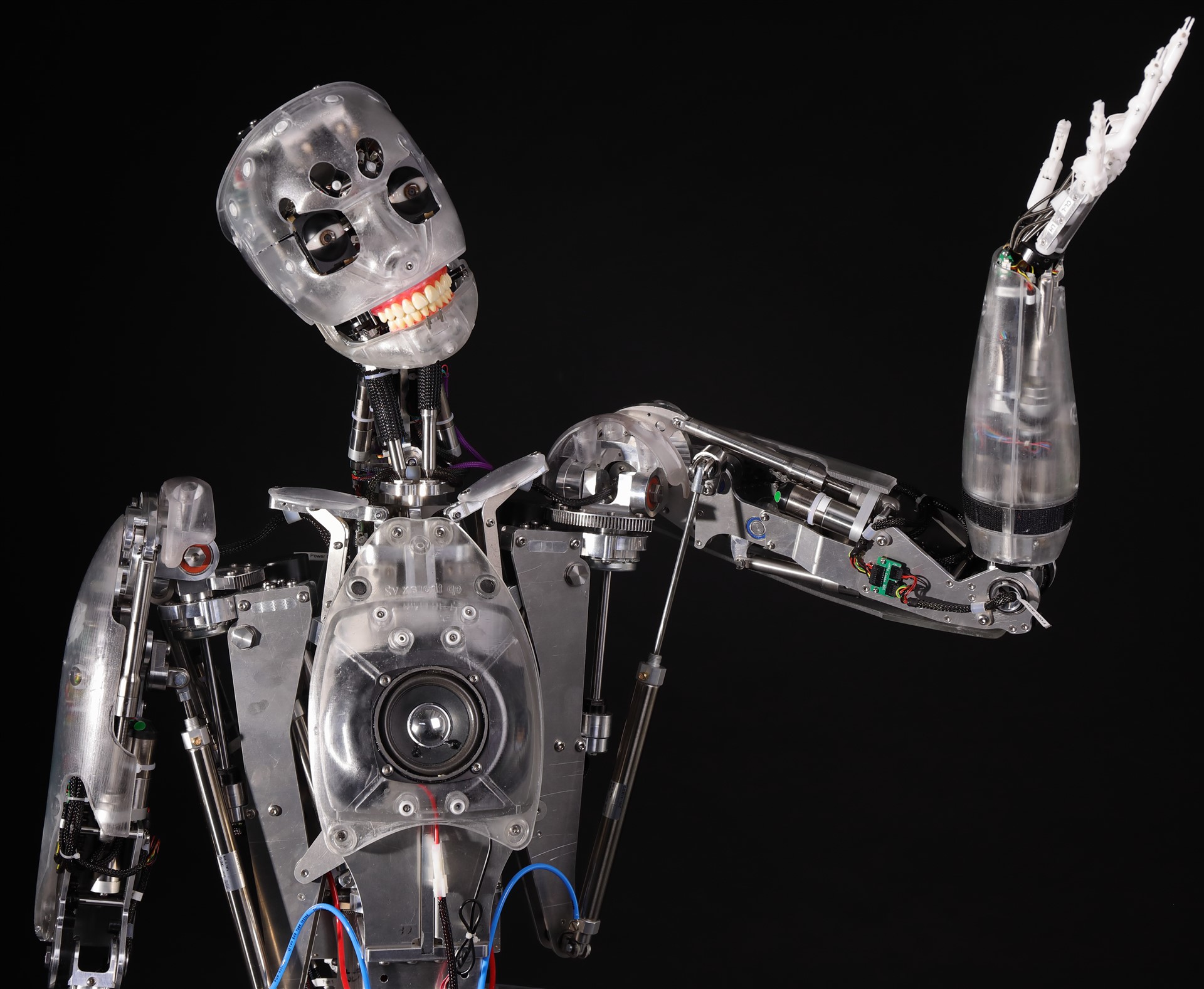This story first appeared in the Winter 2021 edition of Innovation & Tech Today as our Innovator of the Year.
The silence of idle motors springs to life with a whirl and a soft, static buzz. Suddenly, her eyes open! A porcelain smile and seemingly vacant eyes blink under synthetic brows that twitch, contort, and emote an air of surprise.
Is she, real? Is she alive? Well, “yes” and “no.” Her name is Cleo. Her manufacturer? A Falmouth, UK-based boutique tech brand called Engineered Arts (EA).
The company anointed “Mesmer robot” debuted roughly one year ago and to get to know Cleo, you’ll have to peel back the synthetic skin, adjust the wiring, and get to know the founder.
EA’s Frankenstein-ian founder, Daniel Bragg describes the hyperreal robots as “Today’s robotics for tomorrow’s AI,” where, “our internal memo is: ‘Be wow!’”
While this may sound terrifying, as though we’re heading towards a leap into that opening scene from a certain James Cameron flick, the truth is we aren’t quite there yet.
What we may be seeing here is the future in the making — where EA’s advanced, and chillingly convincing, programmable Five Nights at Freddy’s animatronics could be poised to serve as the frontrunners for the future of artificial intelligence made physical. Real. Indistinguishable.
That is, of course, so long as the dreams of singularity theories and the blurring between man, machine, and what makes us, well, us, can develop that perfect code of ones and zeros to make EA very, very wealthy.
The strengths of EA’s approach towards introducing the next generation of robotics rests in two very important areas. Mesmer robots are modular by design and as developers, the Falmouth-based company provides us with in-house software and programming to give a sense of what applications they may offer to the future of AI.
Modules can run independently. This provides current and future developers with the ability to run all modules independently. In other words, there is no need to have a fully assembled robot to make the best of the combination of programming and hardware.
EA’s brand of futuristic technology can allow for say, just a head or a limb to operate as intended and independently with room for future upgrades.

“As well as a development platform, Ameca is also a great attraction,” an Engineered Arts official website statement said. “Wow your customers or visitors at an event or visitor attraction.”
Indeed, these bots could very well be yours and are currently available for purchase and rental. So, scare the hell out of your kids, throw the family pet into a panic, or put on a show at the next company retreat.
“We love designing and building robots, we’ll leave it to you and all the other amazing (naturally intelligent) brains out there to create the AI and machine learning algorithms and see how far we can progress the technology together,” according to a statement released by EA.
We’ll just have to wait and see how this movie plays out. ■











